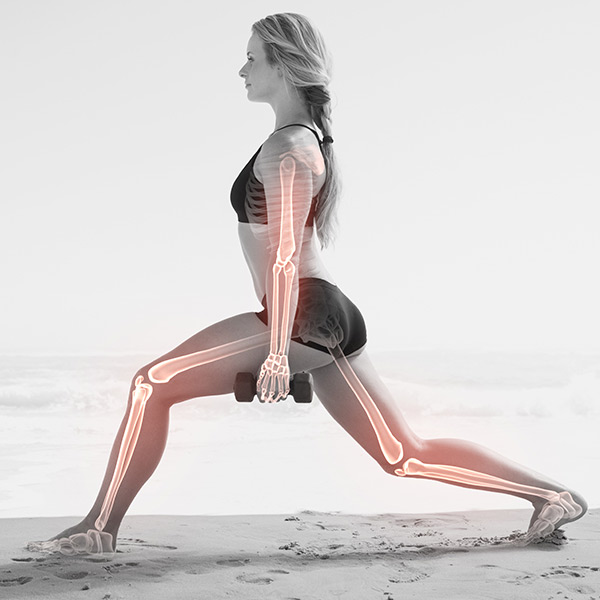




Keeping strong bones should be a high priority for seniors. It's important to maintain our bone density so we can stay healthy and mobile in our retirement years.
Once we hit our senior years, osteoporosis can become our nemesis. Nobody wants to have an aching back or hunched shoulders.
And broken bones affect half of post-menopausal women and a quarter of senior men (the risk is higher for women because female bone structure is generally not as large or dense as male bone structure.)
Osteoporosis can sneak up on us. It's a silent disease that can thin our bones so much that even minor slips and bumps can cause fractures before we even know we've lost bone density.
What Do We Mean by Bone Density?
Bone density has to do with the mineral content inside your bones. Healthy bones contain a dense cross-section of protein strands wrapped in these minerals.
Age, lack of exercise, nutrient deficiencies, and unhealthy habits can cause these strands to break down, leaving our bones more fragile and susceptible to injury and breaks.
After the age of 60 for men and menopause for women, our bones can be negatively affected by many things:
— A reduction in the hormones that boost bone health
— Diseases, illnesses or medications that affect bone density
— A family history of osteoporosis
— A vitamin D deficiency
— Smoking and drinking
— The overuse of antacids (which contain aluminum)
— Low body weight
Any of these factors can cause your bones to become less dense and more brittle, opening the door for breaks and fractures.
Healthy Steps to Improve Bone Density
Still, there is good news! You can take steps to maintain your bone density. The earlier you start, the better.
Calcium
Hit the RDA of calcium for your age (generally 1000 to 1200 mg for seniors). More is not better. Daily and leafy greens are optimal sources. And while calcium alone is not going to maintain your bone density, it's the foundational starting place.
Vitamin D
Vitamin D is vital for helping your body absorb calcium. Make sure you're getting 600 IU daily. Salmon, tuna, and eggs are good sources of this nutrient.
Potassium
Potassium improves the way your body metabolizes calcium. Adults need around 4700 mg daily. Bananas, avocados, and beans are high in potassium.
Protein
Your bones are comprised of protein strands with calcium and potassium, so it stands to reason that a healthy amount of protein will help keep your bones strong. Protein is easily found in meats, eggs, nuts and seeds.
Reduce Caffeine, Alcohol, and Smoking
These can seriously reduce your bone density, so eliminating them entirely is best. But every little bit you can reduce helps your body stay stronger longer.
Weight-Bearing Exercise
Weight-bearing exercise is the hero of this list! Any activity that causes your bones to bear weight (like walking, jogging, aerobics, and weight training) helps keep them strong. Just 20 minutes a day can start making a significant difference in your bone health.
Build Muscle
Strong muscles support your frame. Studies show that seniors with strong muscles are less likely to have fragile bones.
Osteoporosis is not inevitable! The right balance of protein and minerals can help you maintain your bone density. Reducing unhealthy habits can keep you stronger longer. Muscle-building and weight-bearing exercises can keep your bones healthy for a long time.